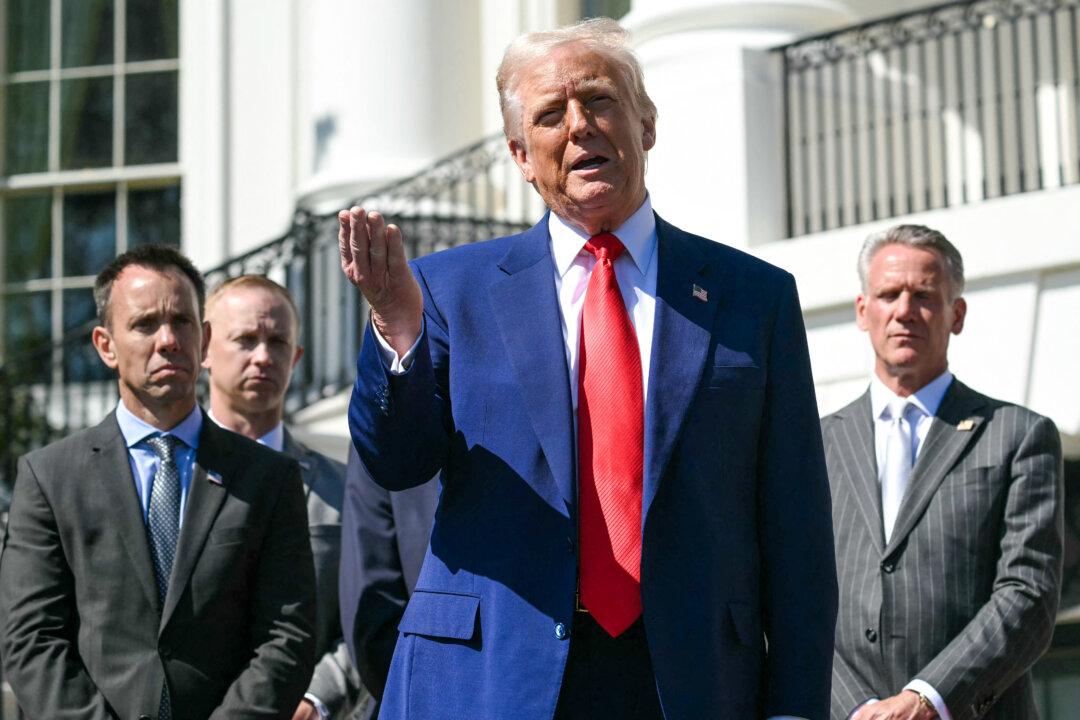President Donald Trump announced on April 9 that he is pausing for 90 days reciprocal tariffs that went into effect earlier in the day, while at the same time raising rates for China.
In a statement posted on social media, Trump said he is suspending reciprocal tariffs that he first announced on April 2—which he dubbed “Liberation Day”—while maintaining a 10 percent baseline tariff across the board.






